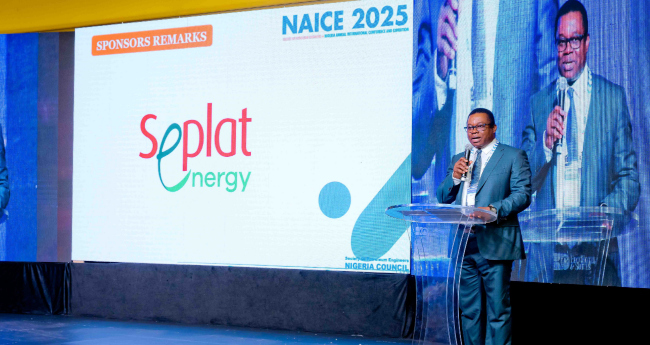Nigeria’s push toward a sustainable energy future demands a comprehensive overhaul of its systems, balancing economic growth with climate action, according to Samson Ezugworie, Chief Operating Officer of Seplat Energy Plc. Speaking at the 2025 Society of Petroleum Engineers (SPE) Nigeria Annual International Conference and Exhibition (NAICE) in Lagos, Ezugworie framed the energy transition as a pivotal opportunity for the nation to address systemic inequities while harnessing innovation.
Representing Seplat CEO Roger Brown at the event, themed ‘Building a Sustainable Energy Future: Leveraging Technology, Supply Chain, Human Resources, and Policy,’ Ezugworie emphasized that Nigeria’s path forward hinges on more than climate goals. “This is an economic imperative,” he told attendees, underscoring the dual urgency of expanding energy access for millions and aligning with global decarbonization efforts. Despite Nigeria’s abundant resources and workforce, he noted that persistent gaps in electricity access and reliance on polluting fuels for cooking and transportation remain stark contradictions.
The conference, which drew regulators, energy firms, financiers, and civil society, spotlighted four critical levers for change. Technology took center stage, with Ezugworie advocating for scalable solutions like off-grid solar and smart grids, tailored to local contexts. However, he cautioned that innovation alone cannot drive progress without robust supply chains and infrastructure. “From gas pipelines to renewable logistics, we need networks that prioritize resilience and transparency,” he stated, calling for multidisciplinary collaboration to bridge urban-rural divides.
Human capital emerged as another cornerstone. “Nigeria’s greatest asset is its people,” Ezugworie said, stressing the need for targeted training and inclusion of engineers, entrepreneurs, and communities to avoid leaving stakeholders behind. On policy, he urged frameworks that incentivize investment, foster fairness, and prioritize public needs. “Bold, consistent regulations are non-negotiable,” he added, acknowledging incremental advancements in electrification and clean energy projects while highlighting uneven implementation.
The event also grappled with hard questions about equity, affordability, and justice in the energy transition. Ezugworie challenged participants to ensure solutions benefit households and industries alike, particularly in marginalized regions. “Progress cannot exclude the vulnerable,” he said, advocating for unified strategies across sectors to accelerate Nigeria’s shift toward a secure, inclusive energy landscape.
The 2025 SPE NAICE served as a hub for cross-sector dialogue, featuring leadership panels, over 80 exhibitors, and discussions on gas monetization, infrastructure resilience, and local capacity-building. Priorities like asset divestment and environmental stewardship highlighted Nigeria’s broader economic ambitions amid evolving global energy dynamics. With stakeholders urging deeper collaboration, the conference underscored both the potential and complexity of transforming Africa’s largest economy through sustainable energy systems.
